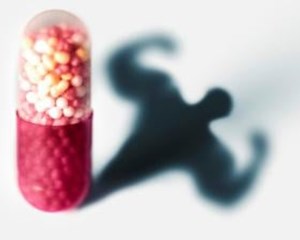Lack of will is also a problem. Sport brings national glory, which can make questioning success risky. After her admission, Ms Shirley was branded a "traitor". State-sponsored doping programmes in East Germany, China and Russia were all aimed at winning political prestige. Sport brings in a great deal of cash, too. Warc, an advertising firm, reckons the worldwide sports-sponsorship market was worth $48bn in 2020. All that money makes it possible to buy off officials. Last year Lamine Diack, Lord Coe's predecessor as the head of World Athletics (then known as the International Association of Athletics Federations) was given a four-year prison sentence for taking bribes to hush up positive doping tests, as were five other officials. (Mr Diack is appealing.)
缺乏意愿也是一個(gè)問題。體育給國家?guī)順s耀,但質(zhì)疑成功卻有風(fēng)險(xiǎn)。雪莉女士在承認(rèn)使用興奮劑后被貼上了“叛徒”的標(biāo)簽。在東德、中國和俄羅斯,國家支持的興奮劑項(xiàng)目都是為了贏得政治聲望。體育運(yùn)動(dòng)也能帶來大量的現(xiàn)金。據(jù)廣告公司W(wǎng)arc估計(jì),2020年全球體育贊助市場價(jià)值480億美元。這些錢使得收買官員成為可能。去年,科勛爵的前任、國際田聯(lián)主席拉明·迪亞克和其他五名官員被判四年監(jiān)禁,罪名是收受賄賂,隱瞞興奮劑檢測結(jié)果呈陽性。(迪亞克正在上訴。)
Ultimately, countries and companies pay both for top-level sport and for the anti-doping system which polices it. This means that, even when they are not actively working to subvert the system, as Russia or Mr Diack did, they do not always have strong incentives to ask hard questions. Mr Salazar had been a divisive figure in athletics long before Nike eventually closed the Oregon Project. WADA itself gets half of its money from governments and half from sporting bodies, raising questions about how truly independent it can ever be.
最終,國家和公司會(huì)為頂級(jí)體育賽事和監(jiān)管該賽事的反興奮劑系統(tǒng)買單。這意味著,即使他們不像俄羅斯或迪亞克那樣積極致力于顛覆體制,他們也并不總是有強(qiáng)烈的動(dòng)機(jī)提出尖銳的問題。早在耐克關(guān)閉俄勒岡項(xiàng)目之前,薩拉查就在體育界引起了爭議。WADA本身一半的資金來自政府,另一半來自體育機(jī)構(gòu),這讓人不禁質(zhì)疑它到底能有多獨(dú)立。

That is a view shared by America's government. Fed up with what it sees as a limp response to the Russian scandal, in December it passed a law known as the Rodchenkov Act. This tries to assert American criminal jurisdiction over any sports event involving American athletes or companies, anywhere in the world. It gives American prosecutors the ability to impose ten-year prison sentences and $1m fines on those found to have aided doping (though it does not apply to individual athletes).
美國政府也認(rèn)同這一觀點(diǎn)。由于受夠了對(duì)俄羅斯丑聞的軟弱回應(yīng),去年12月,美國通過了一項(xiàng)名為《羅琴科夫法案》的法律,試圖維護(hù)美國對(duì)世界任何地方任何涉及美國運(yùn)動(dòng)員或美國公司的體育賽事的刑事管轄權(quán)。它使美國檢察官有權(quán)對(duì)那些被發(fā)現(xiàn)使用興奮劑的人處以10年監(jiān)禁和100萬美元罰款(盡管對(duì)個(gè)別運(yùn)動(dòng)員并不適用)。
Travis Tygart, head of the United States Anti-Doping Agency, described the Rodchenkov Act as a "game-changer". That is hard to argue with. It will drive a coach and horses through existing arrangements. WADA worries the act's extraterritorial ambitions mean two sets of rules could apply to doping cases, and that confusion and resistance from other countries might "shatter" the international anti-doping system. (It also notes, pointedly, that the act's penalties do not apply to parochial American sports such as baseball, which have had their own share of doping scandals.) The Tokyo games are one of the first big international competitions to be held with the act in force. Lord Coe may or may not be right to say, in the wake of the Russian scandal, that getting away with doping will be harder than ever. But the fight against it has rarely been so bad-tempered.
美國反興奮劑機(jī)構(gòu)負(fù)責(zé)人特拉維斯·泰加特稱《羅琴科夫法案》“改變了游戲規(guī)則”,而且很難駁斥,將直接越過現(xiàn)有的規(guī)則。世界反興奮劑機(jī)構(gòu)擔(dān)心,該法案的域外野心意味著兩套規(guī)則可能都將適用于興奮劑案件,而來自其他國家的困惑和抵制可能會(huì)“粉碎”國際反興奮劑體系。(它還明確指出,該法案的處罰不適用于棒球等狹隘的美國體育項(xiàng)目,這些項(xiàng)目也有自己的興奮劑丑聞。)東京奧運(yùn)會(huì)是在這一法律生效的情況下舉行的第一個(gè)大型國際比賽。科勛爵表示,在俄羅斯丑聞爆發(fā)后,興奮劑丑聞將比以往任何時(shí)候都更加嚴(yán)重,這種說法可能正確,也可能不正確。但反對(duì)興奮劑的斗爭很少會(huì)如此激烈。
譯文由可可原創(chuàng),僅供學(xué)習(xí)交流使用,未經(jīng)許可請(qǐng)勿轉(zhuǎn)載。











